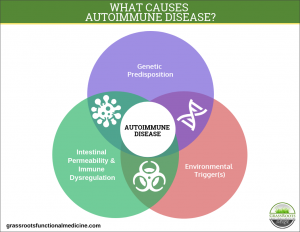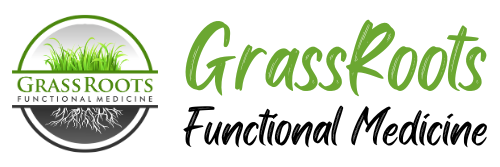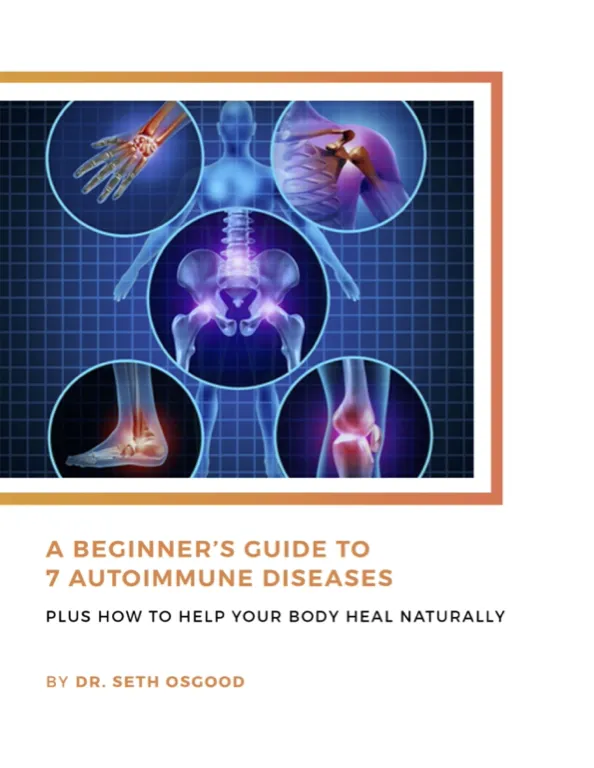Did you know that having mono, aka “the kissing disease” as a teen can lead to autoimmune disease later in life?
Epstein barr, or the mono virus, is just one of several viral and bacterial infections that have been linked to autoimmunity.
These infections are common and often asymptomatic, so many patients don’t realize they’ve contracted them in the first place. Much less that they could be playing a role in their symptoms months or years later.
Let’s look at the infection and autoimmune link, common viral and bacterial infections linked to autoimmune disease, and how to test for and treat them.
How Infections Trigger Autoimmune Disease
We know from the autoimmune triad that environmental triggers, including toxins, infections, diet, stress, hormones, and more play a huge role in autoimmune disease.

Experts aren’t yet sure of the exact mechanism by which viral and bacterial infections trigger and worsen autoimmunity, but it’s likely that a few factors are at play.
Here’s a summary of the three leading theories.
Molecular Mimicry
If the structure of a virus or bacteria is similar enough to your own tissue, your immune system may mistake the two and attack your body along with the infection.
Bystander Activation
In this case your tissues are invaded by the virus or bacteria and suffer collateral damage as your immune system kills off the infection.
Cryptic Antigens
Finally, some viruses are smart enough to hijack your cells’ DNA in order to hide from your immune system’s defenses. However, eventually your immune system detects the virus and attacks it and the cell it’s hiding in.
Infections Linked to Autoimmune Disease
1. Epstein Barr
It’s very likely that you’ve come into contact with this virus even if you were never diagnosed with mono because 95% of all US adults contract it by age 40. However, it’s often misdiagnosed as the flu or strep throat.
This is the infection that’s been studied most extensively in relation to autoimmunity, and research has linked it to Hashimoto’s, Graves’, lupus, Sjogren’s, and most famously multiple sclerosis.
A meta-analysis of over 25 studies found EBV present in 100% of patients with MS. And higher levels of EBV antibodies seem to predict MS symptoms and flare-ups.
2. Herpes Type I and Type II
This is the virus that gives you cold sores or genital herpes. It’s estimated that 50-80% of Americans have one or both types of the herpes simplex virus, even though most will not show symptoms.
Both of the Epstein Barr and herpes viruses can lay dormant in your body for years until stress, illness, or a toxic exposure reignite them. At that point they can either trigger or flare an autoimmune condition.
3. Lyme Disease & Tick-Borne Illness
Lyme disease and Tick-Borne Illnesses are other big, often overlooked factors in many autoimmune cases. Lyme Disease is caused by a bacterial spirochete called Borrelia burgdorferi and is often accompanied by other co-infections which can be equally as problematic. Researchers have specifically found that autoimmune conditions affecting the joints tend to occur in patients after developing Lyme disease.
To further complicate things, its nickname is “the great imitator” because the symptoms it causes can be so vague. It’s often misdiagnosed or missed in patients with autoimmunity because the symptoms overlap.
4. Common Bacterial Infections
Other bacterial infections, including Klebsiella, Provatella, Yersinia, H. pylori, and Chlamydia pneumoniae, have also been linked to specific autoimmune conditions and E. coli has been linked to autoimmunity in general.
Addressing Infections to Reverse Autoimmune Disease
If you suspect an underlying infection may be contributing to your autoimmune condition, your doctor can run lab tests for some of the most common pathogens linked to your specific autoimmune condition.
If we uncover infections, we typically use targeted herbal therapies at the same time supporting your gut microbiome with probiotics to help minimize the disruption of your good bacteria and immune function.
We also work to relieve stress, detoxify your body, and support the immune system and so that it can better defend against these infections without triggering an autoimmune response.
Reversing autoimmunity, especially in complex cases, requires a comprehensive approach that addresses all of your root causes – including infections.
If you’re ready for root-cause resolution in your own health, check out our Adaptation Program to see if it’s the right fit for you.
If it is, book your free, 10-minute discovery call so we discuss your next steps.
About the Author: Dr. Seth Osgood is a Doctor of Nursing Practice, Board Certified Family Nurse Practitioner and Institute of Functional Medicine (IFM) Certified Practitioner.
He has helped people from around the world improve their health utilizing a Functional Medicine approach.
Want to work with Dr. Osgood and the GrassRoots team? Become a patient in our West Lebanon, New Hampshire Functional Medicine clinic, or our Burlington, Vermont Functional Medicine clinic!






0 Comments